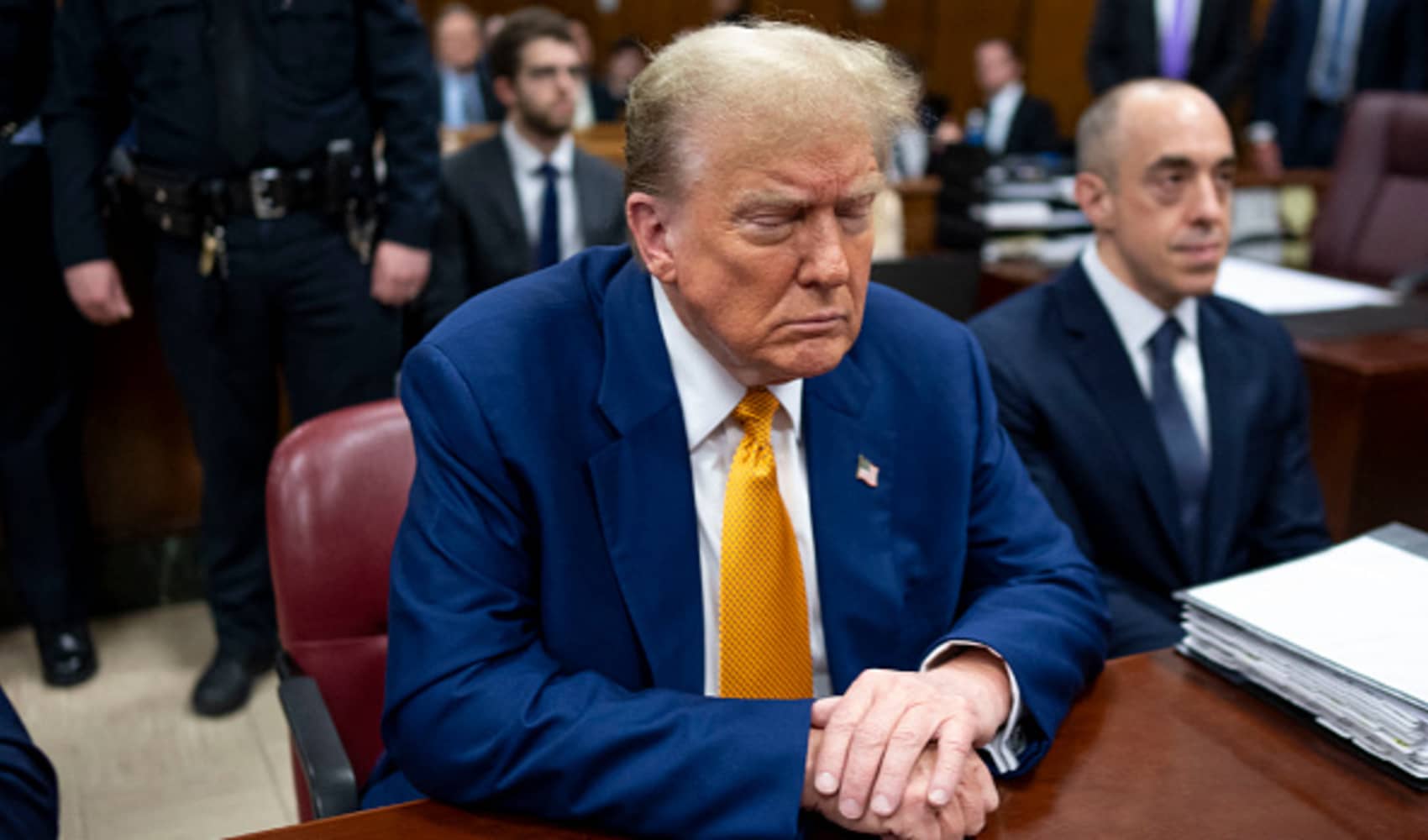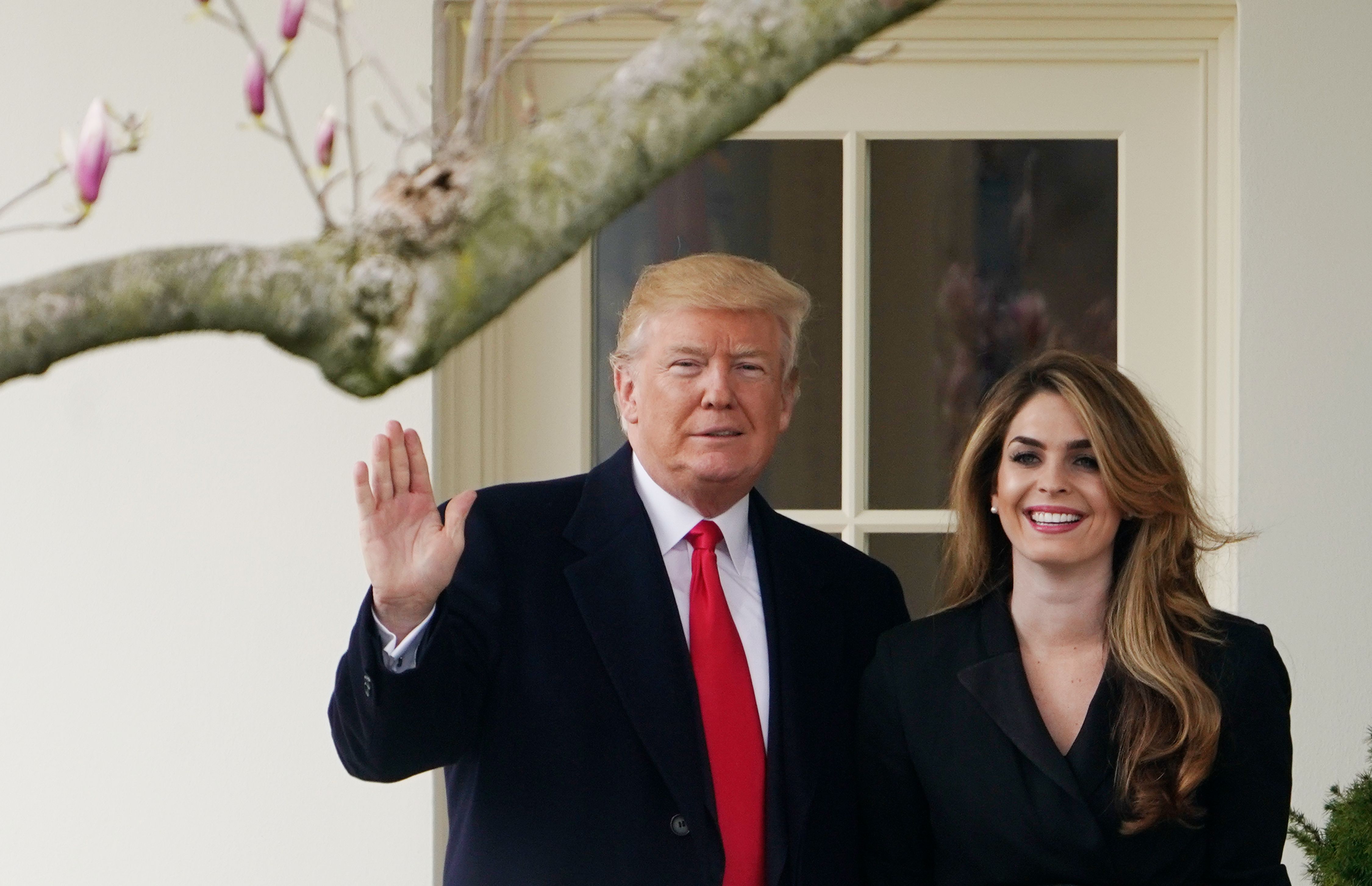The judge presiding over Donald Trump's hush money trial fined him $1,000 on Monday and warned that future gag order violations could send him to jail, while jurors heard detailed testimony for the first time about the financial reimbursements at the center of the case.
The testimony from Jeffrey McConney, the former Trump Organization controller, provided a mechanical but vital recitation of how the company reimbursed payments meant to suppress embarrassing stories from surfacing during the 2016 presidential campaign and then logged them as legal expenses in a manner that Manhattan prosecutors said broke the law.
McConney's appearance on the witness stand came as the first criminal trial involving a former American president entered its third week of testimony. His account lacked the human drama offered Friday by longtime Trump aide Hope Hicks, but it nonetheless yielded an important building block for prosecutors trying to pull back the curtain on what they say was a corporate records cover-up of transactions designed to protect Trump's presidential bid during a pivotal stretch of the race.
At the center of the testimony, and the case itself, is a $130,000 payment from Trump attorney and personal fixer Michael Cohen to porn actor Stormy Daniels to stifle her claims of an extramarital sexual encounter with Trump a decade earlier.
Get top local stories in Philly delivered to you every morning. >Sign up for NBC Philadelphia's News Headlines newsletter.
The 34 felony counts of falsifying business records accuse Trump of labeling the money paid to Cohen in his company’s records as legal fees. Prosecutors contend that by paying him income and giving him extra to account for taxes, the Trump executives were able conceal the reimbursement.
McConney and another witness testified that the reimbursement checks were drawn from Trump's personal account. Yet even as jurors witnessed the checks and other documentary evidence, prosecutors did not elicit testimony Monday showing that Trump himself dictated that the payments would be logged as legal expenses, a designation that prosecutors contend was intentionally deceptive.
McConney acknowledged during cross-examination that Trump never asked him to log the reimbursements as legal expenses or discussed the matter with him at all. And another witness, Deborah Tarasoff, a Trump Organization accounts payable supervisor, said under questioning that she did not get permission to cut the checks in question from Trump himself.
“You never had any reason to believe that President Trump was hiding anything or anything like that?” asked Trump attorney Todd Blanche.
”Correct,” Tarasoff replied.
The testimony followed a stern warning from Judge Juan M. Merchan that additional violations of a gag order barring Trump from inflammatory out-of-court comments about witnesses, jurors and others closely connected to the case could result in jail time.
The $1,000 fine imposed Monday marks the second time since the trial began last month that Trump has been sanctioned for violating the gag order. He was fined $9,000 last week, $1,000 for each of nine violations.
“It appears that the $1,000 fines are not serving as a deterrent. Therefore going forward, this court will have to consider a jail sanction,” Merchan said before jurors were brought into the courtroom. Trump’s statements, the judge added, “threaten to interfere with the fair administration of justice and constitute a direct attack on the rule of law. I cannot allow that to continue.”
Trump sat forward in his seat, glowering at the judge as he handed down the ruling. When the judge finished speaking, Trump shook his head twice and crossed his arms.
Yet even as Merchan warned of jail time in his most pointed and direct admonition, he also made clear his reservations about a step that he described as a “last resort.”
“The last thing I want to do is put you in jail,” Merchan said. “You are the former president of the United States and possibly the next president as well. There are many reasons why incarceration is truly a last resort for me. To take that step would be disruptive to these proceedings.”
The latest violation stems from an April 22 interview with television channel Real America’s Voice in which Trump criticized the speed at which the jury was picked and claimed, without evidence, that it was stacked with Democrats.
Once testimony resumed, McConney recounted conversations with longtime Trump Organization finance chief Allen Weisselberg in January 2017 about reimbursing Cohen for a $130,000 payment intended to buy Daniels' silence over her account of a sexual encounter at a 2006 celebrity golf outing in Lake Tahoe, California.
Weisselberg "said we had to get some money to Michael, we had to reimburse Michael. He tossed a pad toward me, and I started taking notes on what he said,” McConney testified. “That’s how I found out about it.”
“He kind of threw the pad at me and said, ‘Take this down,’” said McConney, who worked for Trump’s company for about 36 years, retiring last year after he was granted immunity to testify for the prosecution at the Trump Organization’s New York criminal tax fraud trial.
A bank statement displayed in court showed Cohen paying $130,000 to Keith Davidson, Daniels' lawyer, on Oct. 27, 2016, out of an account for an entity Cohen created for the purpose.
Weisselberg’s handwritten notes spell out a plan to pay Cohen $420,000, which included a base reimbursement that was then doubled to reflect anticipated taxes as well as a $60,000 bonus and an expense that prosecutors have described as a technology contract.
McConney’s own notes, taken on the notepad he said Weisselberg threw at him, were also shown in court. After calculations that laid out that Cohen would get $35,000 a month for 12 months, McConney wrote: “wire monthly from DJT.”
Asked what that meant, McConney said: “That was out of the president’s personal bank account.”
Trump is accused of falsifying business records by labeling the money paid to Cohen in his company’s records as legal fees. Prosecutors contend that by paying him income and giving him extra to account for taxes, the Trump executives were able conceal the reimbursement.
McConney testified that he had instructed an accounting department employee to record the reimbursements to Cohen as a legal expense.
But McConney acknowledged under cross-examination that Trump never directed him to log Cohen’s payments as legal expenses, nor did Weisselberg relay to him that Trump wanted them logged that way.
“Allen never told me that,” McConney testified. In fact, McConney said he never spoke to Trump about the reimbursement issue at all. Defense lawyer Emil Bove also suggested to McConney that the “legal expenses” label was not duplicitous because Cohen was in fact a lawyer.
“OK,” McConney responded, prompting laughter throughout the courtroom. “Sure. Yes.”
After paying the first two checks to Cohen through a trust, the remainder of the checks, beginning in April 2017, were paid from Trump’s personal account, McConney testified.
With Trump, the only signatory to that account, now in the White House, the change in funding source necessitated “a whole new process for us,” McConney added.
Tarasoff, the other witness who testified Monday, said that once Trump became president, payments from his personal account had to first be delivered, via FedEX, to his new residence in Washington.
“We would send them to the White House for him to sign,” she said.
The checks would then return with Trump’s sharpie signature. “I’d pull them apart, mail out the check and file the backup,” she said, meaning putting the invoice into the Trump Organization’s filing system.
Prosecutors are continuing to build toward their star witness, Cohen, who pleaded guilty to federal charges related to the hush money payments. He is expected to undergo a bruising cross-examination from defense attorneys seeking to undermine his credibility with jurors.
Tucker reported from Washington.



